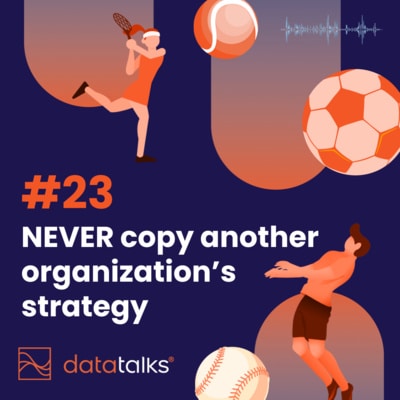Excerpt:
...is copying another organization’s strategy as good of an idea as some people often think?
Well, In the words of Aristotle, the human being is “the most imitative creature in the world, and learns at first by imitation”. And this is crucial because “it allows us to learn new things quickly and efficiently by watching those around us” (May Institute). So naturally, even in sports, we look to those who have years of success under their belts and try to replicate their recipe for success.
There is nothing inherently wrong with taking inspiration from someone else, this includes when you are trying to come up with a strategy. In fact, this is one of the most natural processes ever. However, I would like to draw your attention to the, “at first” part of Aristotle’s quote on imitation - we learn at first by imitation.
This part implies that imitation is only a short-term solution that can be used in the early stages of strategy development. The problem, however, arises when organizations try to copy each other and do exactly what the other is doing, simply because they see that it has worked for them. Not only that but using this as a long-term strategy as well. The main problem associated with this is:
Unpredictable and limited effectiveness: Copying is always unpredictable and limited because,
- You do not have the full information on what led the organization you are taking inspiration from to decide to pursue that strategy in the first place,
- One size does not fit all, meaning, what works for another club might not necessarily work for yours
- No two organizations are the same so in essence, every sports organization needs to have a custom strategy that addresses its specific needs.
- Fans have different reasons for supporting different clubs, so copying someone else’s strategy might negatively affect your fan engagement if your two clubs’ fans have different motivations.
So, in a nutshell, what we are saying is that smaller clubs should not just copy the strategies of bigger clubs. Nor should younger and less established sports organizations try to copy the strategies of older more established organizations. Women’s clubs should most definitely not just copy and paste men’s clubs' strategies.
But what should all these sports organizations do instead of merely copying each other’s marketing strategies?
All sports organizations should use data to power their marketing strategies. This might sound like a cumbersome process, but you too can get started today. You can start on your data collection journey.
We have written a very detailed blog post on data collection which covers topics such as:
- Why you should be collecting data
- Obstacles to data collection
- The benefits of collecting data
- Why a sports CDP is the best tool to use to collect data
- How to get started
Make sure you read that, bookmark it and share it with your time and use it as a first step on your journey to having powerful and efficient strategies powered by real up-to-date data. And if you have missed out on our strategy series, listen to episodes 20 and 21 to catch up.

